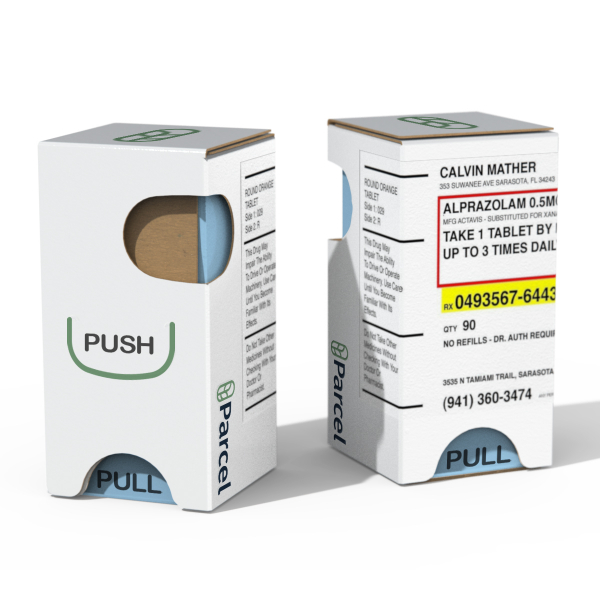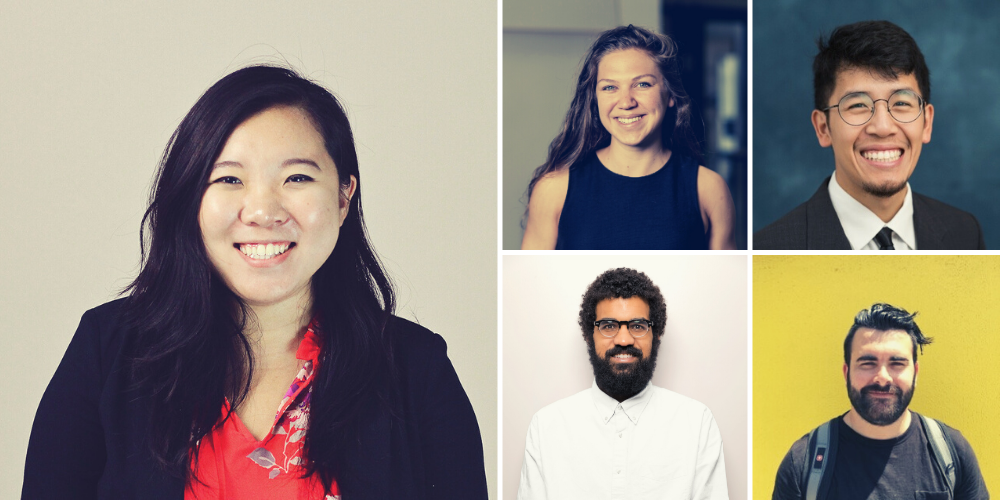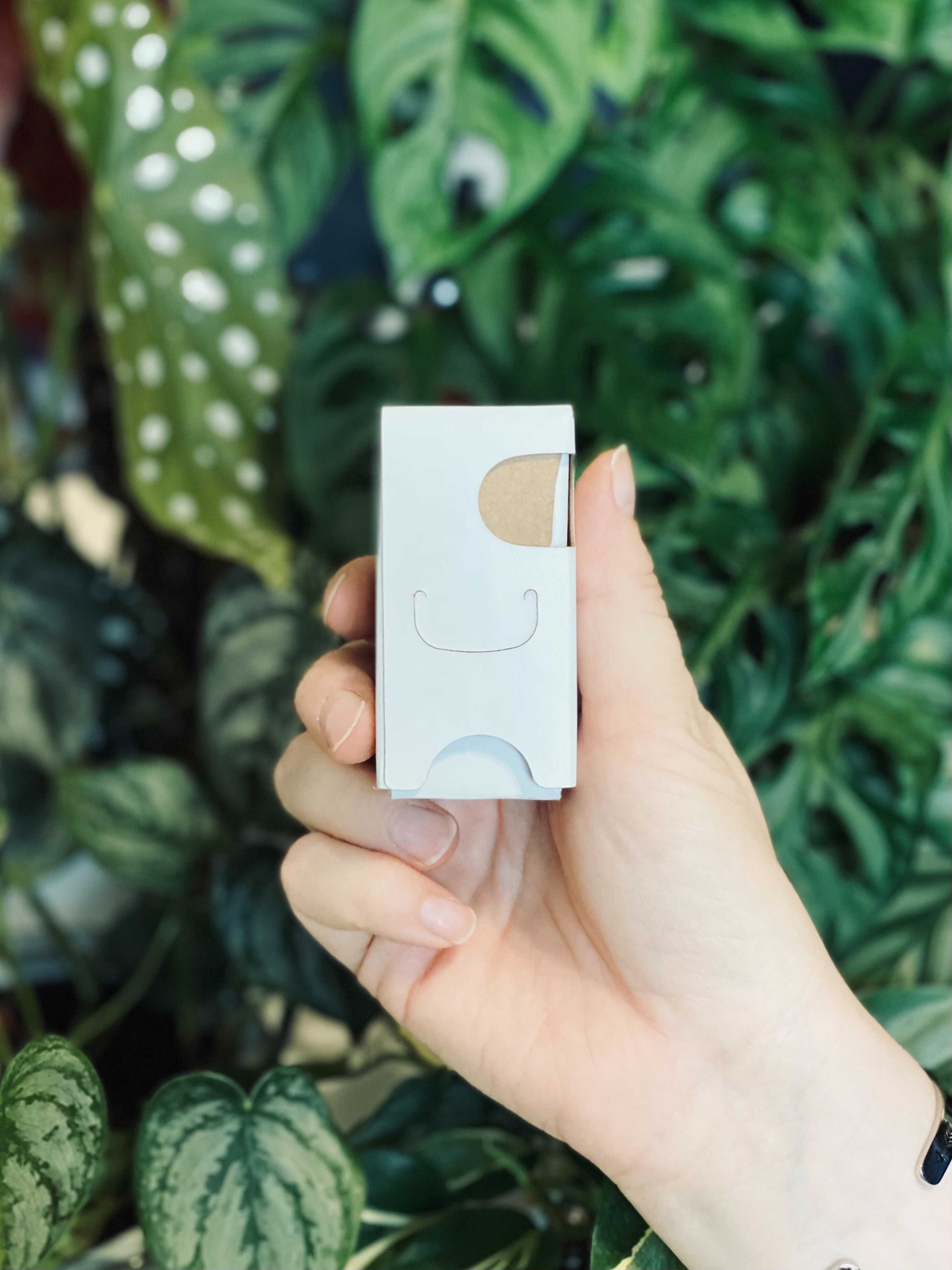Pharmacy Student Co-founds Sustainable Medication Packaging Company; Awarded Seed Funding

Melinda Su-En Lee, PharmD’21, co-founded Parcel Health in 2019, while studying at the University of Michigan College of Pharmacy. The company aims to solve the waste problem caused by traditional plastic prescription bottles. Melinda and partners pitched their business during the Michigan Business Challenge, the University’s annual campus-wide business plan competition.
Parcel Health took home first place in the Seigle Impact Track, which recognizes the business that best pursues a mission-driven goal. They received $15,000, in addition to the Michigan Investment Challenge investment for $2,000, and the OneMagnify Best in Business Award for $5,000.
“I discovered this innovation opportunity when I was completing my internship at a local pharmacy,” explains Melinda. “I overheard a technician talking about the number of patients that asked the pharmacy to stop using plastic bottles. I did not realize it bothered patients — it bothered me as a student behind the counter throwing away hundreds of bottles a day from patients who do not pick up their medications. This was around the time China began refusing plastic waste from the United States, diverting many of the trash to Southeast Asia. I’m an immigrant from Malaysia and my family still lives there. I hated the idea of more American waste being exported to sit in my parent’s backyard.”
“I decided to test the viability of this idea at OptiMize Challenge, another competition hosted at University of Michigan,” recalls Melinda. “Through the program, I was able to set concrete goals to help validate the idea. When I started researching potential co-founders, I found Mallory Barrett on LinkedIn after reading about her winning an award for designing a reusable medication bottle.”
Melinda and Mallory expanded their team to include lead designer Alex Barrette, a product designer at a custom paper packaging company; Victor Le, PhD’21, a Michigan Engineering student and lead engineer; and Tyler Wright, lead research and design, who currently runs multiple businesses.The team estimates that over 8 billion prescriptions are filled in the United States annually. “Plastic pollution is not just a problem for our planet and the environment, but it is a growing problem for pharmacies,” explains Melinda. “As I learned, customers want sustainable alternatives, pushing their local governments and retailers to limit single use plastics. Despite the scale of the single use plastic problem within pharmacies, pharmaceutical packaging is not an area with a lot of sustainability-led innovation. Many entrepreneurs shy away from disrupting this industry because of its high barrier to entry from regulation and administrative red tapes. Our team is unique in that we are an interdisciplinary team of experts, allowing us to address the problem quickly and efficiently.”
To solve these issues, Parcel Health developed the Phill Box. Their patent-pending packaging is water-resistant, recyclable and compostable, child-resistant* yet easy.
“Our north star is to completely eliminate the 100,000 tons of plastic prescription bottles that enter landfills annually,” explains Melinda. “We've developed a 100% curbside-recyclable and compostable packaging that is easy to use, improves the patient experience, and complies with all regulatory standards. Our vision is to create global impact through sustainable healthcare product innovation.”
As a pharmacy student, Melinda understands the pressures on community pharmacies and the regulatory environment within which pharmacists operate. “Our packaging integrates into the existing pharmacy workflows, does not require FDA-approval and is compliant with the Poison Prevention Packaging Act. Pharmacists are busy enough saving patient lives every day. We knew from the beginning that our solution needed to fit into their workflow with minimal disruptions to be a viable solution.”
Developing the Phill Box was an interprofessional team effort. “We spend a lot of time on video calls and messaging on Slack during our developmental process,” notes Melinda. “Once we have our prototypes made, we send them out to friends and family and pharmacy owners to get feedback. Our process allows us to constantly iterate with feedback, and improve our product.”
The Michigan Business Challenge Competition was the next step in refining the business concept and a way to get in front of potential investors.
“None of the team studied business, so the learning curve was steep,” says Melinda. “The competition was rigorous and ultimately, extremely worth the effort. Many of the deliverables we created for the competition are currently being used to communicate with important stakeholders and investors. We plan to use the funds we won to develop our remote company infrastructure, obtain third-party certifications for our products, and develop our supply chain.”
Melinda plans to focus her time post-graduation on expanding her business: “We have investors and other stakeholders that are counting on us to bring our vision to light. Additionally, I will continue my work on health policy research because I believe pharmacists need to be the active voices in increasing health equity in the United States.”
Those interested in learning more about Parcel Health can reach Melinda and her team at [email protected]
*pending third-party certification





